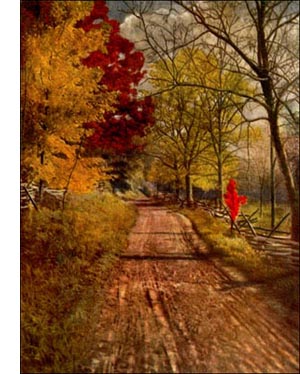White Birch Tree
 The White Birch of Europe (Betula alba, Linn.) we rarely see. The weeping and cut-leaved varieties of this species adorn American parks and gardens-their only fault, that they are short lived. "Like a fair lady in a far country" is the white birch here, and we cherish our specimen trees with profound solicitude.
The White Birch of Europe (Betula alba, Linn.) we rarely see. The weeping and cut-leaved varieties of this species adorn American parks and gardens-their only fault, that they are short lived. "Like a fair lady in a far country" is the white birch here, and we cherish our specimen trees with profound solicitude.In its own country the peasants depend upon the birch forests in a great many ways. In the north of Europe birch is the principal fuel in houses and smelting works. It makes good charcoal. The Russians eat with wooden spoons, and wear wooden shoes, both made of birch. They live in houses furnished with birch furniture, and shingled with slabs of birch bark. They strip and grind the soft inner bark, and mix it with meal in their bread. Even the tiny winged seeds serve a useful purpose. Birds, especially the white ptarmigan in Lapland, feed upon them through the long, cold winters, when deep snows cover all other foods. Lopped trees send up suckers which are cut and bound into birch brooms. The inner bark is stripped into sheets and serves for paper. The famous books of Numa Pompilius were written on birch bark, if Plutarch is to be believed. Birch wood contains abundance of sap. In spring a tree will often yield its NN eight in sap in a fortnight. Birch mead and wine are most refreshing beverages. Birch bark yields tannin, a yellow dye, and an oil which gives Russia leather its characteristic colour and odour. Swedish farmers look for the opening leaves of the birch as a sign to sow their barley. In England the elm is watched for the same reason.
In Parkinson's day the "physicall uses" of birch were few. But he adds:
"Many other civill uses the Birch is put unto, as first to decke up Houses and arbours, both for the fresh greennesse and good sent it casteth; it serveth to make hoopes to binde caskes withall; the young branches being fresh are writhed, and serve for bands unto faggots: of the young twiggs are made broomes to sweepe our houses, as also rods to correct children at schoole, or at home, and was an ensigne borne in bundles by the Lictors or Sargeants before the Consulls in the old Romans times, with which, and with axes borne in the like manner, they declared the punishment for lesser, and greater offences, to their people."
In the very end of their swift decay birch trees served the fashionable world in the heydey of the powdered wig. "The
whitest part of the old wood of doating birches is made the grounds of our effeminate farined Gallants' sweet powder."
American birches are more valuable lumber trees and more
graceful for ornamental uses than the forest birches of Europe. Let us cease to compare them with oaks and hickories, and set ourselves to appreciate those peculiar virtues and charms that the birches alone possess.